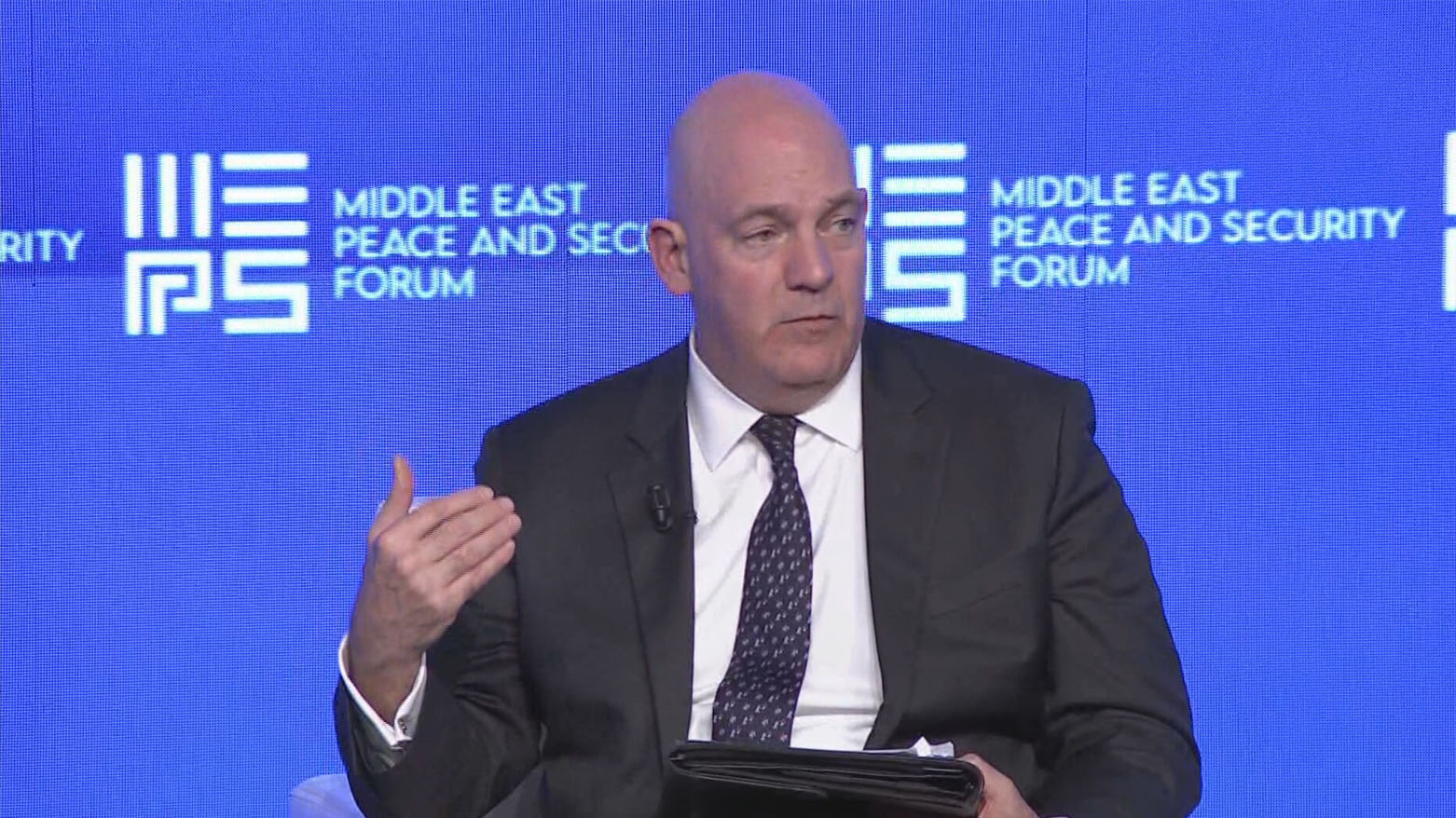Former US Official: American Presence in Iraq is ‘Not Imposed’
Former US official Clarke Cooper stated at MEPS that America's presence in Iraq depends on Baghdad's request, noting US partnership strengthens Kurdistan but also exposes it to threats. The forum concluded with calls for regional peace.

ERBIL (Kurdistan24) – Clarke Cooper, former U.S. Assistant Secretary of State for Political-Military Affairs, affirmed that current American policy toward Iraq and the Kurdistan Region is not imposed, stressing that Washington will continue its presence only if it is explicitly requested by the Iraqi government and people.
Speaking on Wednesday, November 19, 2025, during a panel at the Middle East Peace and Security Forum (MEPS), Cooper outlined the approach of the current U.S. administration, especially under President Donald Trump. He emphasized that if Iraq seeks foreign investment—particularly in the energy sector—or wishes to maintain security coordination with the United States, Washington is fully prepared to engage. However, he said, if Baghdad or Erbil reject U.S. security cooperation or the continued presence of American forces, “America will accept that decision.”
Cooper added that successive U.S. administrations have maintained security coordination with the Kurdistan Region and that the presence of American forces has significantly benefited and strengthened Erbil. At the same time, he acknowledged that this partnership has also made the Region vulnerable to threats and attacks.
President Masoud Barzani’s participation in the forum, Cooper noted, underscored the Kurdistan Region’s long-standing strategic dialogue with the United States.
The sixth Middle East Peace and Security Forum (MEPS) concluded its three-day sessions on Wednesday.
Hunar Essa, President of the MEPS Forum, officially announced the conclusion of this year’s conference, expressing hope that the American University of Kurdistan (AUK) in Dohuk will host the forum’s seventh edition next year.
Essa highlighted the significance of the forum, praising its successful sessions with the participation of President Masoud Barzani, international delegations, senior officials, academics, and youth. He noted that President Barzani’s engagement and his vision for a “new Middle East” reaffirmed his steadfast commitment to peace as the central objective of the region.
He emphasized that the depth of the forum’s discussions was encouraging, particularly at a time when the Middle East is experiencing profound instability. According to Essa, MEPS serves as a bridge connecting decision-makers, experts, and researchers, while also offering opportunities for academics, students, and young people to develop new ideas. He stressed that MEPS is not merely an academic endeavor, but an influential platform shaping political thinking and future trajectories for Iraq, the Kurdistan Region, and the wider Middle East.
In closing, Essa expressed appreciation to AUK, the organizers, officials, experts, academics, students, media outlets, and all participants, affirming his hope to welcome them again at MEPS 2027.